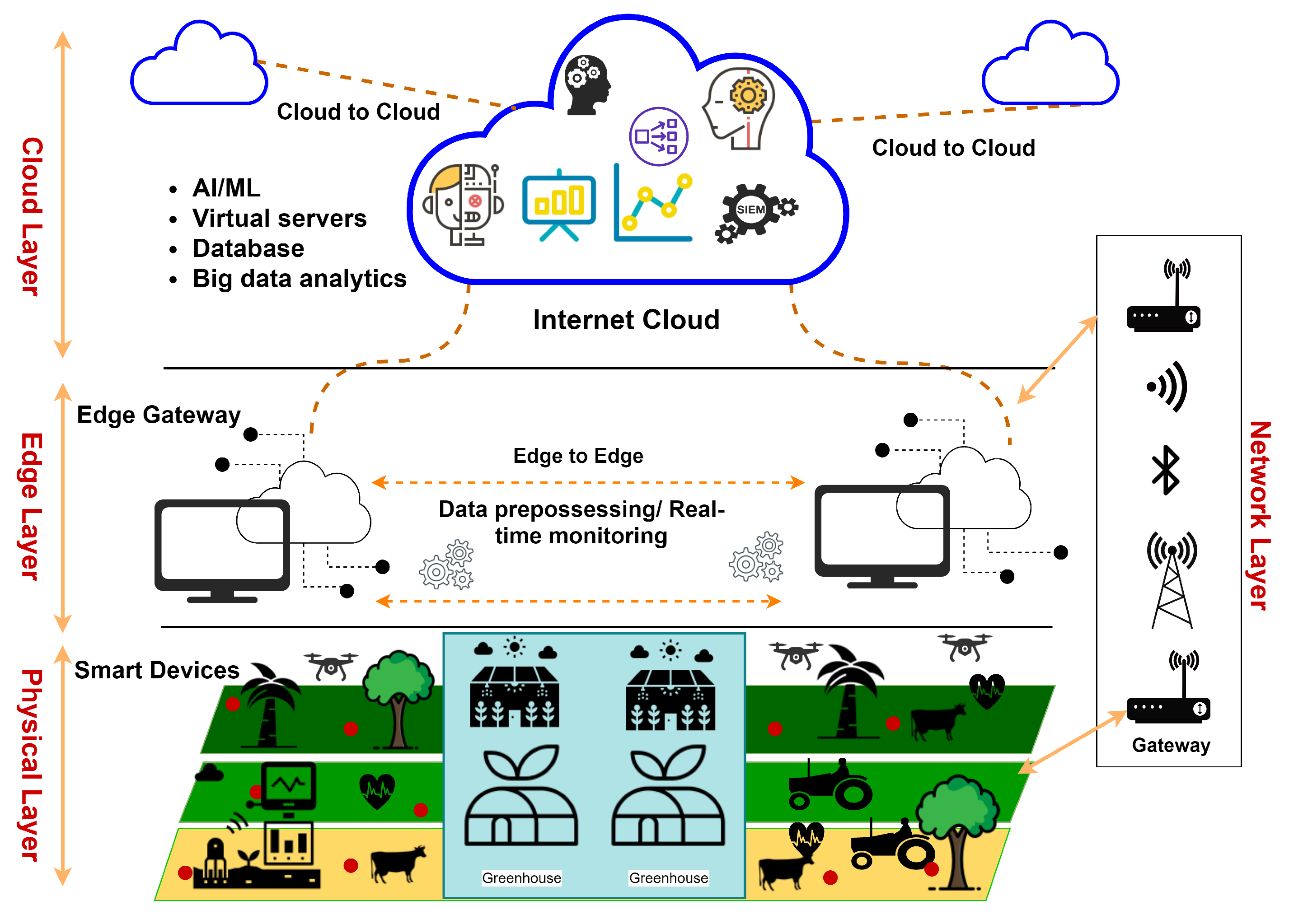Introduction:
The world of agriculture is evolving rapidly, thanks to the integration of technology and automation. Smart agriculture, often referred to as precision agriculture, is transforming the industry by leveraging data and technology to optimize farming processes. From drones that monitor crop health to automated tractors, this shift towards automation brings a slew of benefits. Yet, it also introduces new risks, especially in terms of cybersecurity. In this blog post, we will delve into the challenges and solutions surrounding cybersecurity in smart agriculture.
The Rise of Smart Agriculture:
Smart agriculture is driven by a combination of technologies, such as the Internet of Things (IoT), Artificial Intelligence (AI), and data analytics. These innovations provide farmers with valuable insights, improving crop yields, resource management, and overall operational efficiency.
Challenges in Implementing Automation in Agriculture:
While the benefits of automation are undeniable, there are several challenges that need to be addressed to ensure a secure and productive smart agriculture system.
Data Privacy and Ownership:
One of the primary concerns in smart agriculture is the ownership and privacy of data generated by various farm sensors and equipment. Farmers need to be aware of who has access to their data and for what purposes it is being used.
Vulnerable IoT Devices:
IoT devices are at the core of smart agriculture. These devices are often resource-constrained, making them attractive targets for cyberattacks. Securing these devices is crucial to prevent unauthorized access to critical farm systems.
Network Vulnerabilities:
The interconnectivity of smart agriculture systems can introduce vulnerabilities in the network. Weak links in the network can potentially expose the entire farming operation to cyber threats.
Data Integrity:
Ensuring the integrity of data is essential for making informed decisions. Tampering with data can lead to disastrous outcomes for farmers, as decisions based on incorrect information can harm crops, livestock, and profitability.
Solutions to Enhance Cybersecurity in Smart Agriculture:
Addressing the challenges in smart agriculture requires a proactive approach to cybersecurity. Here are some solutions to protect farm data and ensure the safety and reliability of automated farming operations.
Data Encryption and Authentication:
Implement strong encryption and authentication mechanisms for data transmitted between devices and systems. This ensures that only authorized individuals or devices can access and manipulate farm data.
Regular Software Updates:
Keep all IoT devices and software up to date to patch known vulnerabilities. Regular updates are critical in preventing potential exploits that could compromise the system.
Access Control and Permissions:
Define and manage access control policies, allowing only authorized personnel to access and modify systems and data. This restricts the potential attack surface.
Intrusion Detection Systems (IDS):
Deploy IDS to monitor network traffic for suspicious activity. These systems can help detect and respond to potential cyber threats in real-time.
Employee Training:
Educate farm employees about cybersecurity best practices. Human error is a common entry point for cyberattacks, and well-informed staff can be the first line of defense.
Collaborate with Cybersecurity Experts:
Engage with cybersecurity experts or consulting firms to assess your smart agriculture systems and recommend security measures tailored to your farm’s specific needs.
Conclusion:
Smart agriculture has brought transformative changes to the farming industry, enabling farmers to make data-driven decisions and improve their efficiency. However, the integration of automation also brings forth new cybersecurity challenges. Protecting farm data and systems is paramount to ensure the continued success of automated farming operations.
By adopting the solutions mentioned above and staying vigilant about emerging threats, farmers can reap the benefits of smart agriculture while safeguarding their livelihoods and data. As technology continues to advance, the future of agriculture holds promise, as long as it is protected by robust cybersecurity measures.




